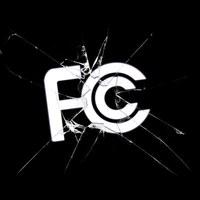Media outlets critical of President Trump are used to being called “fake news.” But they have good reason to worry that the president will go beyond name-calling. He could try to use his power to retaliate against media companies that criticize him and reward those that praise him.
And, at least by the lights of a Senate hearing today, the officials tasked with protecting Americans’ access to the airwaves and the internet don’t seem eager to stand in his way.
During a two-and-a-half-hour meeting of the Committee on Commerce, Science, and Transportation, senators grilled Federal Communications Commission members on net neutrality, privacy, and affordable internet access. But the most contentious moments came when the questions turned to media ownership.
Millions Need the Broadband Program the FCC Just Put on Hold
Think the Internet Is Polarized? Just Look at the FCC These Days
“Do you agree with President Trump that the media is the enemy of the American people?” senator Tom Udall (D-NM) asked FCC chair Ajit Pai, referring to Trump’s tweet declaring the media just that.
“I don’t want to wade into the larger political debates,” Pai responded. Pressed for an answer, he said, “I believe that every American enjoys the First Amendment protections guaranteed by the constitution.”
Later, Maggie Hassan (D-NH)1 pushed Pai for an answer. “It seems to me that if you’re an outspoken defender of the free press that should be a pretty easy question for you,” she said.
Pai punted again, saying that though he supports free speech but didn’t want to wade into the political debate.
Pai’s equivocations matter, because the FCC plays a pivotal role in determining what Americans see and hear. Regulators could try to block AT&T’s proposed acquisition of Time Warner, the parent company of frequent Trump punching bag CNN. Or they could loosen media ownership rules so that Sinclair Broadcasting–one of the Trump campaign’s preferred broadcasters–could acquire the Tribune Media Group, which Sinclair has reportedly approached about a merger. The White House could even try to pressure the FCC to selectively enforce its rules to hurt or favor certain companies—say, crack down on Comcast when MSNBC comes down on the president.
‘I don’t want to wade into the larger political debates.’ Ajit Pai
Pai said that the FCC probably won’t handle the AT&T/Time Warner merger because he doesn’t expect any FCC licenses to be transferred in the deal. But the agency still holds tremendous influence over many media companies. Pai gave a lawyerly response when asked if he would resist any attempt by the White House to use the FCC to intimidate news organizations.
“For any matter that is placed before me I will take a sober look at the facts that are based on the papers submitted by interested parties,” he said. “And I will render a decision based on the law and precedence that relate to those facts and make a determination based on what I and my colleagues believe is in the public interest.”
That answer may be technically correct, but morally it’s lacking. Pai doesn’t outright reject the idea of abuses of power, so long as those abuses of power fall in line with the law and his own interpretation of public interest. Upholding the law and the constitution should be table stakes for a federal appointee. Public servants should not have to think twice about standing up in defense of constitutional rights.
1Correction at 11:35 PM ET on 3/8/2017:An earlier version of this story said that Catherine Marie Cortez Masto (D-NV) pressed Pai for an answer. It was actually Maggie Hassan (D-NH).


